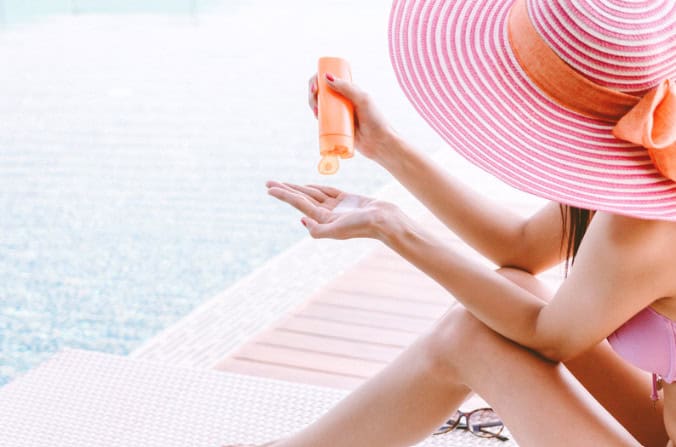With the sun at its annual peak, now is the perfect time to talk about UV safety and skin health. The team at Ally Medical Emergency Room sees firsthand the effects of UV exposure and the importance of proper skin care. Whether you’re enjoying a day at the lake or Gulf Coast, enjoying a game of golf, or simply walking your dog, protecting your skin from the sun’s harmful rays is crucial. Dr. Amol Desai, Medical Director at Ally Medical ER Buda, explores the importance of sun protection, the dangers of UV exposure, and shares valuable tips on sun safety and skin cancer prevention.
The Importance of Skin Care
“Your skin is the largest organ in your body, serving as a protective barrier against the environment,” Dr. Desai says. “It helps regulate body temperature, prevents dehydration, and shields you from harmful microbes. Taking care of your skin is essential not only for its appearance but also for your overall health.”
Daily Skin Care Routine
- Cleanse: Use a gentle cleanser to remove dirt, oil, and impurities from your skin.
- Moisturize: Apply a moisturizer to keep your skin hydrated and prevent dryness.
- Protect: Use sunscreen with an SPF of 30 or higher daily, even on cloudy days.
The Dangers of UV Exposure
Ultraviolet (UV) radiation from the sun is a major cause of skin damage. There are three types of UV radiation: UVA, UVB, and UVC. UVA and UVB rays reach the earth’s surface and can harm your skin.
- UVA rays: Penetrate deep into the skin and contribute to premature aging and wrinkles.
- UVB rays: Cause sunburn and play a key role in the development of skin cancer.
- UVC rays: Absorbed by the ozone layer and do not reach the earth’s surface.
“Prolonged exposure to UV radiation can lead to various skin problems, including sunburn, eye damage and skin cancer,” says Dr. Desai. “Skin cancer is the most serious consequence of UV exposure, and it can result in the form of melanoma, basal cell carcinoma, and squamous cell carcinoma. Additionally, UV radiation can promote premature aging.”
Subscribe to our newsletter
Sun Safety Tips
Protecting your skin from UV radiation is crucial to maintaining healthy skin. Here are some tips to keep you safe in the sun:
- Use Sunscreen: Apply a broad-spectrum sunscreen with an SPF of 30 or higher. Reapply every two hours and after swimming or sweating.
- Seek Shade: Stay in the shade, especially during peak sun hours from 10 a.m. to 4 p.m.
- Wear Protective Clothing: Long-sleeved shirts, wide-brimmed hats, and UV-blocking sunglasses can provide additional protection.
- Avoid Tanning Beds: Tanning beds emit UV radiation and can increase your risk of skin cancer.
- Stay Hydrated: Drink plenty of water to keep your skin hydrated and healthy.
Skin cancer is the most common form of cancer in the United States. Taking preventive measures can significantly reduce your risk, Dr. Desai says. Regular skin checks can help detect skin cancer early when it’s most treatable.
Here’s what to look for:
- Asymmetry: One half of a mole doesn’t match the other.
- Border: Edges are irregular, ragged, or blurred.
- Color: Varies from one area to another.
- Diameter: Larger than 6mm (about the size of a pencil eraser).
- Evolving: Changes in size, shape, or color.
“Conduct monthly self-exams to check for new or changing moles or spots,” Dr. Desai says. “Save the closest Ally Medical ER location to your phone so that, if you experience severe sunburn or eye irritation after being in the sun, you can seek medical care quickly. If you have any concerns about your skin or need medical assistance, don’t hesitate to visit us.”
UV safety and skin health are vital to your overall well-being. By understanding the dangers of UV exposure and taking proactive steps to protect your skin, you can enjoy the sun safely and reduce your risk of skin cancer.
“Remember, your skin is worth protecting every day of the year,” says Dr. Desai.



